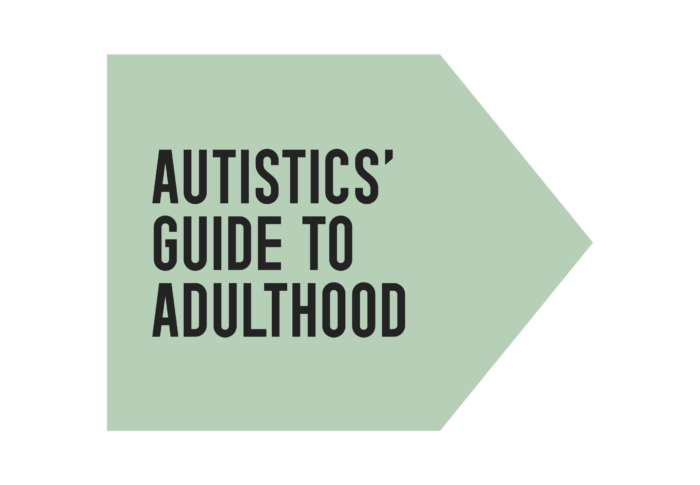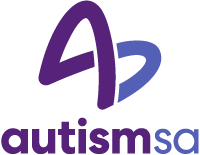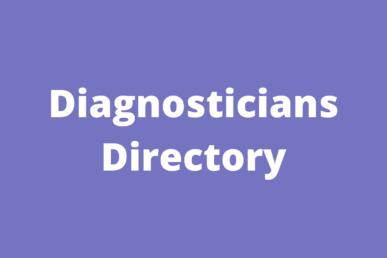Autism Diagnosis for Adults and Children
There is no biological test for autism. Instead, autism is diagnosed through observation and interaction with an individual, in conjunction with background information relating to development, health and behaviours.
No two individuals’ experience of autism is the same. This means that the specific requirements of the autism diagnostic process can vary depending on the need. Similarly, the assessment process is different for children and adults.
Autism assessment for children
After receiving a written referral, the diagnostic team uses questionnaires to gather preliminary information regarding the child’s behaviours and interactions in different settings.
One questionnaire is for parents/carers to complete and is about the child’s very early development. The other questionnaire gathers information about the child’s pattern of behaviours in their school setting; parents are asked to give this questionnaire to a staff member who they feel knows their child well.
Parents are also sent a consent form; the questionnaires and consent form must be returned before an appointment for the assessment can be organised.
What happens during a child's autism assessment?
Observation and interaction are key elements of an autism assessment for a child.
At Autism SA, they take place with a member of the Diagnostic Team in a dedicated space featuring a range of games and toys that may be used as part of the assessment. While this occurs, parents or carers are interviewed in an adjoining room and detailed information about their child’s development and current patterns of behaviour is recorded.
Assessments are videoed (with parental permission) to enable members of the team not present in the room to observe and contribute to the findings.
During an assessment, we are looking for specific characteristics and behaviours that are likely to indicate whether or not a child is on the autism spectrum. Assessments may look unstructured, but they are being conducted by very skilled professionals who are looking for very specific patterns of behaviour.
Much of what happens during the assessment will actually be led by the child, and this enables the diagnostician to observe a range of behaviours.
In some cases, it may be that the Diagnostic Team will also want to observe a child in another setting, such as at kindergarten or at school.
The time required for an assessment can vary, from between 1 to 2½ hours. Parents and carers will be advised of the length of time it is anticipated will be needed in their appointment letter.
Assessment criteria for a child to receive an autism diagnosis
The interactions and observations made during the assessment, developmental history, plus information gathered during the referral process, are then considered by the Diagnostic Team in light of the criteria for diagnosing autism as set out in the American Psychiatric Association’s Diagnostic and Statistical Manual of Mental Disorders — more commonly referred to as DSM-5.
In DSM-5, there are two domains necessary for a diagnosis of autism to be made:
- Social communication and social interaction, and
- Repetitive or restricted behaviour, interests or activities.
Based on all the information we have gathered from others and our own observations, we assess whether any combination of signs and characteristics of autism displayed by your child in these two domains are causing significant challenges in their social, personal, family or educational lives.
If so, it is likely that they will be diagnosed as being on the autism spectrum.
What information will I receive about my child’s assessment for autism?
The Diagnostic Team will write a report based on our findings, explaining the outcome and the reasons for it.
This will be sent to you between 2 to 4 weeks after your child’s assessment, and there is no additional charge for this service.
If you have been referred to Autism SA by another healthcare professional, we will also send them a copy of the report, with your permission. The report will be only be shared with people for whom you give express consent.
What is the cost of an autism assessment for a child?
The cost of a diagnostic assessment for a child under 18 at Autism SA is $2,000.
My child has been diagnosed with autism — what happens next?
If your child has received a diagnosis of autism, we will, with your consent, inform the Autism SA My Pathways Team. A Pathways Consultant will then make contact with you directly (often by SMS in the first instance) in order to arrange a Newly Diagnosed Support meeting (either online, over the phone or face to face), where your ongoing needs and options in terms of next steps, support, available programs, NDIS funding, etc., will all be discussed.
This meeting will give you an opportunity to discuss your specific circumstances and needs, and the ways in which Autism SA can support you on your autism journey.
My child has not been diagnosed with autism – what should I do now?
The report you receive from our Diagnostic Team will explain the reasons for the outcome of your child’s assessment. They might also be able to provide you with additional information about other types of assessment that may be helpful, or make suggestions as to other supports and services you may be able to access.
Autism assessment for adults
Although the diagnostic criteria for autism in adults is the same as for children, the way in which signs and characteristics are assessed against these criteria will likely be different.
What is the diagnostic assessment process for adults?
Adults generally come to Autism SA for an assessment either through self-referral, i.e., they make a referral themselves or one is made on their behalf by a partner or family member, or they are referred to us by a GP, nurse or allied health professional. Assessments can only take place if the adult consents to the process in writing.
In either case, as part of the referral process you or your referrer will have been asked to complete a Diagnostic Assessment Referral form. After the Diagnostic Team receives the referral, you will then be sent an 8-page questionnaire to complete, and which asks you to give relevant information about specific areas of your development as a child, a teenager, and then into adulthood.
You will also be asked to give a similar questionnaire to a member of your family or someone who knows you very well.
The information provided in these questionnaires is then the starting point for a conversation and interaction based assessment, which will be tailored to your needs and circumstances.
You will also be asked to complete a standardised screening tool for Autism Spectrum Disorder. A consent form will also be sent to you.
Once the team has received the questionnaires, screening tool and consent form, an appointment for your assessment will be organised.
You will be asked questions about any signs and characteristics of autism that you might display in terms of your social communication and interaction, or any restricted, repetitive patterns of behaviour that you exhibit.
Other relevant factors may also be examined, such as any co-occurring conditions or whether you have previously received another diagnosis.
Helping you to find answers
The diagnostic assessment process can for some people be difficult and intense, or feel intrusive.
However, it is important to remember that it is about finding answers, and our highly experienced Diagnostic Team is very professional and skilled, and will support you through any anxiety you may feel.
One of the main benefits of receiving an autism diagnosis is that it can help you better to understand some of your characteristics and behaviours, and so the diagnostic process can lead to positive outcomes without necessarily being a positive process in itself.
Assessment criteria used for assessing autism in adults
The interactions and observations made during this part of the assessment, plus the background information gathered during the referral process, are then considered by the Diagnostic Team in light of the criteria for diagnosing autism as set out in the American Psychiatric Association’s Diagnostic and Statistical Manual of Mental Disorders — more commonly referred to as DSM-5.
In DSM-5, there are two domains necessary for a diagnosis of autism to be made:
- Social communication and social interaction, and
- Repetitive or restricted behaviour, interests or activities.
Based on all the information we have gathered from others and our own observations, we assess whether any combination of signs and characteristics of autism displayed in these two domains are causing significant challenges in your social, personal, family, professional or educational life.
If so, it is likely that you will be diagnosed as being on the autism spectrum.
What is the cost of an autism assessment for an adult?
The cost of a diagnostic assessment for an adult over 18 at Autism SA is $2000.
What information will I receive about my assessment for autism?
The Diagnostic Team will write a report based on our findings, explaining our conclusion and the reasons for it.
This will be sent between 2 to 4 weeks after an assessment and there is no additional charge for this service.
If you have been referred to Autism SA by another healthcare professional, we will also send them a copy of the report with your permission. The report will be only be shared with people for whom you give express consent.
I have been diagnosed with autism — what happens next?
If you receive a diagnosis of autism, we will, with your consent, inform the Autism SA My Pathways Team. A Pathways Consultant will then make contact with you directly (often by SMS in the first instance) in order to arrange a Newly Diagnosed Support meeting (either online, over the phone or face to face), where your ongoing needs and options in terms of next steps, support, available programs, NDIS funding, etc., will all be discussed.
This meeting will give you an opportunity to discuss your specific circumstances and needs, and the ways in which Autism SA can support you on your autism journey.
I have not received an autism diagnosis – what are my next steps?
The reasons for the outcome of the assessment will be detailed in the report prepared for you by the Autism SA Diagnostic Team. They may also be able to make some recommendations as to further assessments you could undertake which might prove beneficial, as well as support and services that might be available to you.
SIGN UP FOR FREE
Autistics' Guide to Adulthood
Autistics’ Guide to Adulthood is an online life-skills resource to support people to achieve their goals. It’s free and available to anyone who would like to learn more about adulthood.
Learn more
Autistics’ Guide to Adulthood is an online life-skills resource to support people to achieve their goals. It’s free and available to anyone who would like to learn more about adulthood.
Learn more







